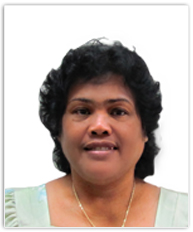Peer Counseling Center
The Peer Counseling Center is funded by UNFPA and Title X Family Planning Program. The purpose of the Center is to promote a positive collective experience while at COM-FSM through an atmosphere which fosters understanding, sensitivity, trust, respect, and fairness.
The Center is staff by student counselors. Because students and are, therefore, more effective in responding to issues that concern them, peer counselors are recruited and trained to reach students with information that focuses on health education and prevention. This is done in an atmosphere, which fosters understanding, sensitivity, trust, respect, and fairness. The aim is to help students understand and analyze issues that can affect them, so they can make healthy choices.
What do Peer Counselors do?
Peer counselors are free to be creative in reaching as many fellow students with their message. They can conduct their program in the classrooms, resident halls, and other student areas.
Counselors Activities
- Organizing large-scale programs for Alcohol Awareness Week
- Conduct outreach activities to the college community and the nearby schools as requested.
- Perform counseling on Family planning, personal issues and financial aid.
- Writing articles for the school paper
- Designing a newsletter
- Producing innovative skits and role-playing
- Creating games and health related materials
- Conduct education awareness and peer to peer on Family Planning including Sexual Transmitted Infections (STIs), HIV/AIDS, and Substance Abuse Prevention
What is Peer Health Counseling?
College students are at a stage when they are confronted with many choices that can affect their mental and physical well being and, because of their limited knowledge about health an wellness, are at greater risk of making wrong choice. But information along is not enough. Peer health counseling, based on social learning and health behavior theories, is a proven, more effective way to reach young people and provide them with information and skills that will motivate them to make healthy decisions for themselves.
Because young people tend to do what they believe their friends and peers are doing, peer health counseling can help create positive peer pressure and normalize healthy behavior. Further, since many teenagers report that they receive most of their information about sex from their peer, peer educators can also be a good source to help correct misinformation and dispel myths.
Why become a Peer Counselor?
There are many reasons for becoming a peer counselor. As a counselor you can:
- become a students leader who is respected by your peers
- reach many people in a short amount of time
- spread important educational information
- have the opportunity to work closely with other students while gaining experience in a valuable activities
- gain helpful experience if interested in working in a health, social work, psychology, or education-related field
- learn about themselves and other students
- gain more knowledge about issues of concern on a college campus
Peer Education
Years of research have shown that the provision of information is not enough to reduce rates of pregnancy and sexually transmitted diseases among our young people. Peer education, based on social learning and health behavior theories, is an effective way to reach young people with information, skills, and motivation teens can use to make healthy decisions for themselves. While it is impossible to generalize about all youths, developmentally, they have a great deal in common.
Research
Research has shown that young people tent to do what they believe their friends and peers are doing. Peer educators help to create positive peer pressure and normalize healthy behavior. Since many teenagers report that they receive most of their information from their peer, peer educators is a good source of help correct misinformation and dispel myths.
